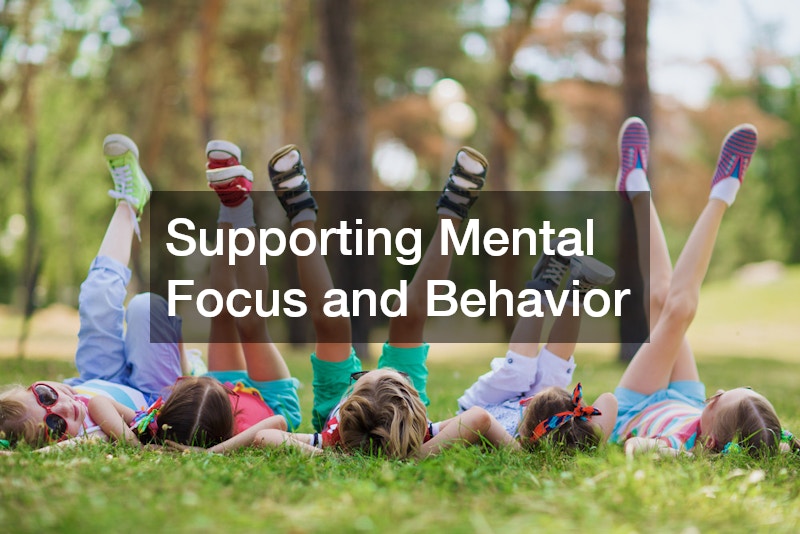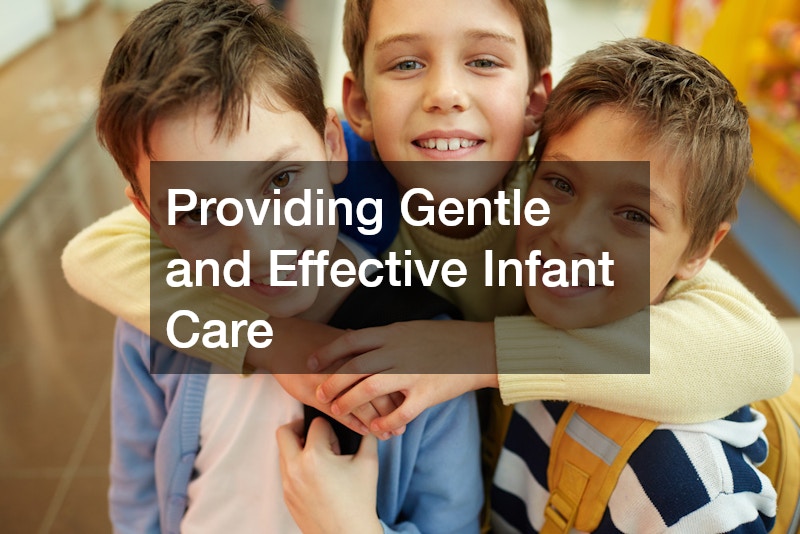Understanding the range of pediatric services available today is essential for parents who want the best for their children. From infancy to adolescence, a child’s body and mind go through rapid changes, and professional care is needed to support every stage. Learning all about pediatrics involves exploring the diverse fields of medical, behavioral, and developmental care that work together to help kids thrive. These services include preventive checkups, screenings, diagnostics, therapies, and specialized interventions that focus on the unique needs of children. Unlike adult medicine, pediatrics addresses the evolving needs of growing bodies, developing brains, and emotional well-being. It also incorporates guidance for parents on how to navigate issues like nutrition, sleep routines, mental health, and school performance.
Promoting Dental Health From an Early Age
Oral health is a crucial part of overall well-being, even for very young children. Establishing a relationship with a pediatric dentist early on can help prevent cavities, ensure proper oral development, and teach children good hygiene habits. Pediatric dentists specialize in treating children’s dental issues from infancy through adolescence. Their offices are usually designed to be child-friendly, with tools and procedures tailored to smaller mouths and growing teeth. These specialists also monitor developmental milestones such as tooth eruption and jaw alignment. Their work includes preventive care like fluoride treatments and sealants, as well as restorative procedures if decay occurs. Teaching children how to brush and floss properly is a key part of every visit, and many pediatric dentists even offer guidance on thumb-sucking and pacifier use. By focusing on early intervention, pediatric dentists help reduce the chances of more serious problems later on. They are also trained in managing dental anxiety, making the experience less stressful for both the child and the parent. Understanding this aspect is critical when learning all about pediatrics, as oral health has lasting implications on speech development, nutrition, and confidence as kids grow.
Supporting Mental Focus and Behavior

As children begin school and social activities, some may struggle with attention, hyperactivity, or impulsiveness. These challenges can affect academic performance, social interactions, and family dynamics. An add adhd doctor plays an essential role in evaluating and treating children who exhibit symptoms of Attention-Deficit/Hyperactivity Disorder. These specialists are usually developmental pediatricians, child psychiatrists, or neurologists who have advanced training in diagnosing behavioral disorders. Their approach often involves a combination of behavioral assessments, interviews, and standardized tools to develop a full picture of the child’s functioning. Treatment plans may include behavior therapy, parent education, school accommodations, and, when necessary, medication. These doctors also monitor for co-occurring conditions such as anxiety or learning disorders. Families working with an add adhd doctor gain valuable insight into how to support their child in managing focus and behavior. As part of learning all about pediatrics, it’s important to understand that early diagnosis and intervention lead to more successful outcomes. Children benefit from structured support that allows them to thrive both academically and socially. This area of care exemplifies how pediatric services are not limited to physical health but encompass emotional and cognitive well-being, too.
Ensuring Healthy Vision for Lifelong Learning
Vision plays a key role in a child’s development, particularly in school performance and social interaction. While many parents wait until a child complains of blurry vision to seek help, it’s best to schedule regular exams with optometry doctors who specialize in pediatric care. These professionals can identify vision problems like nearsightedness, farsightedness, lazy eye, and eye coordination issues before they interfere with learning or behavior. Optometry doctors use tools and techniques specifically designed for children, making the experience less intimidating and more accurate. Early diagnosis and treatment are essential, as vision problems can sometimes be mistaken for learning or attention difficulties. Glasses, eye exercises, and follow-up care are common elements of treatment plans. Regular eye exams ensure that developmental milestones are being met and that no issues are going unnoticed. Pediatric vision care is a key component of learning all about pediatrics because it influences every aspect of a child’s daily life. From reading and writing to playing sports and developing confidence, healthy eyesight is foundational. Partnering with pediatric optometry doctors ensures your child sees the world—and their potential—clearly and comfortably.
Addressing Feeding Challenges and Speech Barriers

Feeding difficulties in infants and speech delays in toddlers can sometimes be linked to oral-motor issues, including tongue ties. A tongue tie specialist is a healthcare provider, often a pediatric dentist or ENT (ear, nose, and throat) doctor, who evaluates and treats this condition. Tongue tie, or ankyloglossia, occurs when the tissue connecting the tongue to the floor of the mouth is too tight, restricting movement. This can impact breastfeeding, speech, and oral hygiene. A tongue tie specialist uses a detailed assessment process to determine the severity of the condition and whether a procedure—typically a frenectomy—is needed. These procedures are often quick and minimally invasive, with little discomfort for the child. Follow-up therapy may include exercises or speech therapy to support full recovery. For parents learning all about pediatrics, understanding the importance of early oral assessments can be a game-changer. Prompt evaluation and treatment of a tongue tie can dramatically improve feeding, reduce parental stress, and support healthy language development. These services are an example of how specialized pediatric care addresses specific developmental hurdles, ensuring children have every opportunity to grow and communicate effectively.
Monitoring Cardiovascular Health from Childhood
Although heart conditions are often associated with older adults, many children require the expertise of heart doctors to address congenital or acquired cardiovascular issues. Pediatric cardiologists specialize in diagnosing and managing heart problems in babies, children, and teens. They use advanced diagnostic tools like echocardiograms, electrocardiograms, and stress tests to evaluate how a child’s heart is functioning. These heart doctors treat a wide range of conditions, from heart murmurs and arrhythmias to more complex structural defects. Treatment can range from lifestyle modifications to medications and, in some cases, surgical intervention. Ongoing monitoring is essential to ensure that the child is developing normally and staying active without health risks. Learning all about pediatrics includes being aware that even subtle symptoms like fatigue, shortness of breath, or fainting should be evaluated by a pediatric cardiologist. These specialists work closely with primary care providers and other pediatric professionals to ensure coordinated, comprehensive care. Their goal is to help every child live a full, healthy life, regardless of any cardiac challenges. Early detection and specialized treatment of heart conditions make a lasting difference in long-term health and quality of life.
Teaching Conflict Resolution and Emotional Regulation

Children today face a complex world filled with social pressures and emotional challenges. Mediation training is an increasingly popular service offered in pediatric therapy and counseling settings to help kids learn emotional regulation, empathy, and effective communication. This type of training teaches children how to navigate disagreements without aggression and how to express their feelings in constructive ways. Pediatric counselors or child psychologists often lead these sessions, using age-appropriate techniques like role-playing, storytelling, and group activities. Mediation training also benefits siblings, classmates, or family members who experience frequent conflicts. Parents are often included in sessions to reinforce skills at home. As part of learning all about pediatrics, recognizing the value of emotional intelligence is essential. A child who can manage emotions and solve problems peacefully is better equipped for success in relationships, school, and later professional life. These training programs build confidence, reduce behavioral issues, and create a foundation for mental wellness. Mediation training helps children gain self-awareness and compassion, key traits in today’s interconnected world. Pediatric services that support emotional and social development are just as crucial as those addressing physical health.
Understanding Key Stages in Development
Child development refers to the progression of physical, cognitive, emotional, and social skills that children acquire as they grow. Pediatricians and developmental specialists closely monitor milestones such as walking, talking, problem-solving, and interacting with peers. Recognizing when a child is progressing typically—or when they might need extra support—is a fundamental part of pediatric care. Learning all about pediatrics includes understanding that each child’s development follows a unique timeline, but early intervention is key when delays are suspected. Developmental screenings are often performed during routine checkups, and more in-depth evaluations can be conducted by specialists if concerns arise. Services may include occupational therapy, physical therapy, speech-language therapy, or psychological counseling, depending on the child’s needs. Child development professionals often work within schools, clinics, or hospitals, collaborating with families and educators to create supportive environments. They offer tools and strategies that help children overcome obstacles and reach their full potential. From infancy through adolescence, monitoring developmental progress ensures that each child gets the personalized care and encouragement they need. It’s one of the most insightful and proactive ways to support growing kids.
Providing Gentle and Effective Infant Care

Parents searching for exceptional infant care often look to specialized services available in large metropolitan areas. For example, infant care Miami providers are known for their comprehensive approach to nurturing young children during their most vulnerable stage. These services go beyond basic childcare, offering medical oversight, developmental screenings, nutritional guidance, and early learning experiences. Pediatricians, nurses, and trained caregivers collaborate to ensure infants are meeting key milestones and receiving personalized attention. Infant care centers in Miami and similar cities often emphasize a holistic model that integrates family education and wellness programs into daily routines. These facilities may also offer lactation consulting, sleep coaching, and language development activities. When exploring all about pediatrics, it’s important to understand how early experiences shape long-term outcomes. High-quality infant care supports secure attachments, emotional regulation, and cognitive growth. Choosing a care provider that prioritizes health, safety, and emotional well-being sets the foundation for lifelong success. Whether you’re a working parent or simply seeking guidance, infant care services are a valuable resource for every family. Comprehensive infant care is where pediatric support begins, making it one of the most essential investments in a child’s future.
Responding to Accidents and Physical Injuries
Kids are naturally active, and injuries are often an unavoidable part of growing up. From playground tumbles to sports mishaps, accidents can sometimes result in broken bones or joint damage. Bone repair for children requires specialized knowledge to ensure that growth plates are preserved and healing occurs properly. Pediatric orthopedic specialists are trained to treat fractures, dislocations, and other musculoskeletal issues in young patients. Their approach involves not just fixing the injury but also monitoring development to avoid long-term complications. Treatment options may include casting, bracing, or surgical intervention, depending on the severity of the injury. Bone repair in children also emphasizes pain management, emotional support, and family education. As part of understanding all about pediatrics, parents should know that pediatric bones heal differently than adult bones, often more quickly, but with unique challenges. Follow-up care is critical to ensure the child regains full mobility and function. Pediatric orthopedic care helps children return to their normal activities with confidence and safety. It also offers valuable lessons in body awareness and injury prevention. Caring for a child’s physical health after an injury requires a team that understands both anatomy and childhood psychology.
Supporting Recovery After Hospitalization
Recovering from surgery, serious illness, or a prolonged hospital stay can be especially challenging for young patients. Post hospital rehab is a specialized service that helps children regain strength, coordination, and independence after discharge. These programs may be offered in hospitals, outpatient clinics, or even at home, depending on the child’s condition and needs. Pediatric rehabilitation involves a team of professionals, including physical therapists, occupational therapists, speech-language pathologists, and psychologists. They create customized plans focused on rebuilding physical function, supporting emotional well-being, and re-integrating into school or family life. For children with chronic illnesses or disabilities, post hospital rehab can also involve long-term care strategies and adaptive tools. Understanding all about pediatrics means recognizing that recovery doesn’t end at discharge—it continues through structured, supportive therapy. Rehab helps reduce the risk of setbacks, boosts confidence, and allows children to achieve age-appropriate skills. Parents are an essential part of the process, receiving education and training to support their child’s progress. Post hospital rehab ensures that children have every opportunity to heal completely and return to a full, vibrant life. It’s a critical chapter in the journey of pediatric health.
Knowing all about pediatrics means understanding that comprehensive care extends far beyond basic checkups and immunizations. Pediatric services now encompass a wide range of specialties that work together to support every dimension of a child’s health—physical, emotional, cognitive, and social. From seeing a dentist to working with development experts or recovering through hospital rehab, children have access to a holistic system designed specifically for them.



